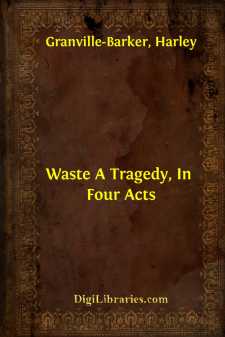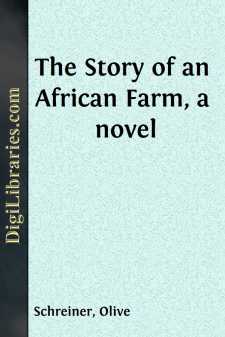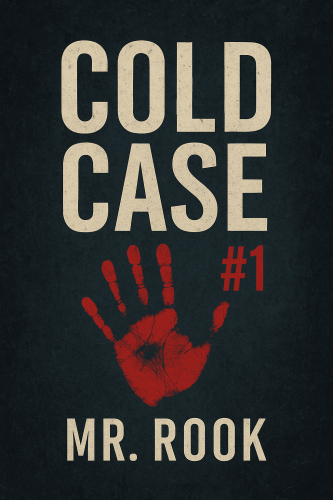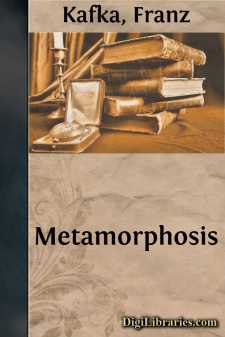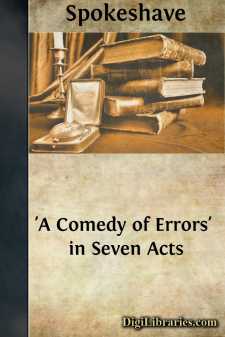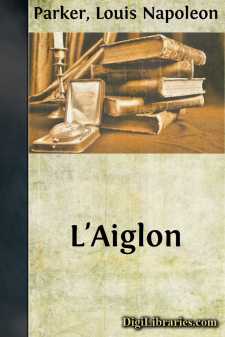Categories
- Antiques & Collectibles 13
- Architecture 36
- Art 48
- Bibles 22
- Biography & Autobiography 813
- Body, Mind & Spirit 142
- Business & Economics 28
- Children's Books 17
- Children's Fiction 14
- Computers 4
- Cooking 94
- Crafts & Hobbies 4
- Drama 346
- Education 46
- Family & Relationships 57
- Fiction 11829
- Games 19
- Gardening 17
- Health & Fitness 34
- History 1377
- House & Home 1
- Humor 147
- Juvenile Fiction 1873
- Juvenile Nonfiction 202
- Language Arts & Disciplines 88
- Law 16
- Literary Collections 686
- Literary Criticism 179
- Mathematics 13
- Medical 41
- Music 40
- Nature 179
- Non-Classifiable 1768
- Performing Arts 7
- Periodicals 1453
- Philosophy 64
- Photography 2
- Poetry 896
- Political Science 203
- Psychology 42
- Reference 154
- Religion 513
- Science 126
- Self-Help 84
- Social Science 81
- Sports & Recreation 34
- Study Aids 3
- Technology & Engineering 59
- Transportation 23
- Travel 463
- True Crime 29
Waste A Tragedy, In Four Acts
Description:
Excerpt
WASTE
At Shapters, George Farrant's house in Hertfordshire. Ten o'clock on a Sunday evening in summer.
Facing you at her piano by the window, from which she is protected by a little screen, sits Mrs. Farrant; a woman of the interesting age, clear-eyed and all her face serene, except for a little pucker of the brows which shows a puzzled mind upon some important matters. To become almost an ideal hostess has been her achievement; and in her own home, as now, this grace is written upon every movement. Her eyes pass over the head of a girl, sitting in a low chair by a little table, with the shaded lamplight falling on her face. This is Lucy Davenport; twenty-three, undefeated in anything as yet and so unsoftened. The book on her lap is closed, for she has been listening to the music. It is possibly some German philosopher, whom she reads with a critical appreciation of his shortcomings. On the sofa near her lounges Mrs. O'Connell; a charming woman, if by charming you understand a woman who converts every quality she possesses into a means of attraction, and has no use for any others. On the sofa opposite sits Miss Trebell. In a few years, when her hair is quite grey, she will assume as by right the dignity of an old maid. Between these two in a low armchair is Lady Davenport. She has attained to many dignities. Mother and grandmother, she has brought into the world and nourished not merely life but character. A wonderful face she has, full of proud memories and fearless of the future. Behind her, on a sofa between the windows, is Walter Kent. He is just what the average English father would like his son to be. You can see the light shooting out through the windows and mixing with moonshine upon a smooth lawn. On your left is a door. There are many books in the room, hardly any pictures, a statuette perhaps. The owner evidently sets beauty of form before beauty of colour. It is a woman's room and it has a certain delicate austerity. By the time you have observed everything Mrs. Farrant has played Chopin's prelude opus 28, number 20 from beginning to end.
Lady Davenport. Thank you, my dear Julia.
Walter Kent. [Protesting.] No more?
Mrs. Farrant. I won't play for a moment longer than I feel musical.
Miss Trebell. Do you think it right, Julia, to finish with that after an hour's Bach?
Mrs. Farrant. I suddenly came over Chopinesque, Fanny; ... what's your objection? [as she sits by her.]
Frances Trebell. What ... when Bach has raised me to the heights of unselfishness!
Amy O'Connell. [Grimacing sweetly, her eyes only half lifted.] Does he? I'm glad that I don't understand him.
Frances Trebell. [Putting mere prettiness in its place.] One may prefer Chopin when one is young.
Amy O'Connell. And is that a reproach or a compliment?
Walter Kent. [Boldly.] I do.
Frances Trebell. Or a man may ... unless he's a philosopher.
Lady Davenport. [To the rescue.] Miss Trebell, you're very hard on mere humanity.
Frances Trebell. [Completing the reproof.] That's my wretched training as a schoolmistress, Lady Davenport ......


